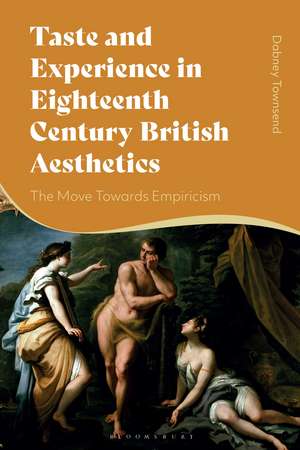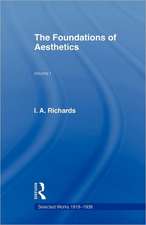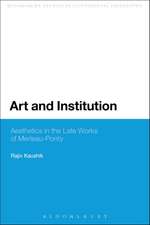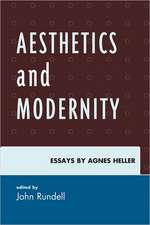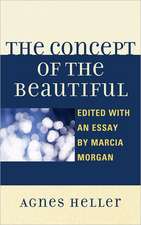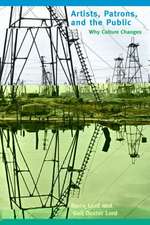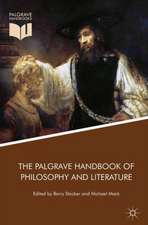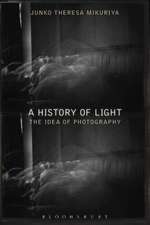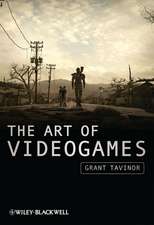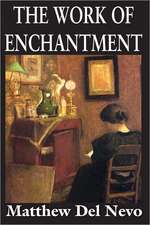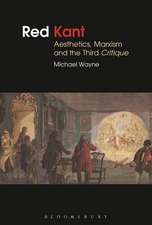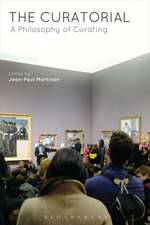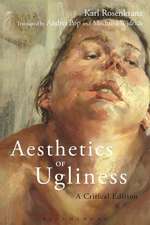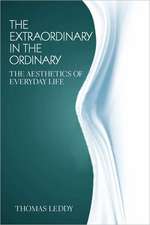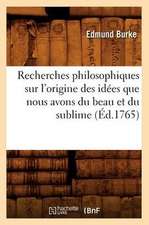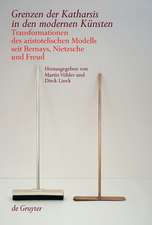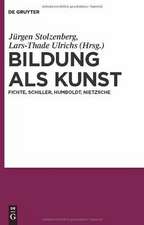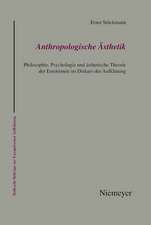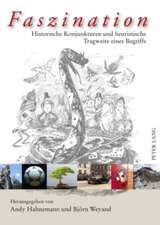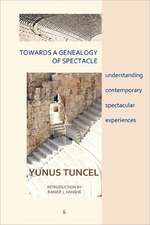Taste and Experience in Eighteenth-Century British Aesthetics: The Move toward Empiricism
Autor Dr Dabney Townsenden Limba Engleză Paperback – 27 dec 2023
| Toate formatele și edițiile | Preț | Express |
|---|---|---|
| Paperback (1) | 191.56 lei 6-8 săpt. | |
| Bloomsbury Publishing – 27 dec 2023 | 191.56 lei 6-8 săpt. | |
| Hardback (1) | 540.23 lei 6-8 săpt. | |
| Bloomsbury Publishing – 29 iun 2022 | 540.23 lei 6-8 săpt. |
Preț: 191.56 lei
Preț vechi: 249.48 lei
-23% Nou
Puncte Express: 287
Preț estimativ în valută:
36.66€ • 38.06$ • 30.57£
36.66€ • 38.06$ • 30.57£
Carte tipărită la comandă
Livrare economică 25 martie-08 aprilie
Preluare comenzi: 021 569.72.76
Specificații
ISBN-13: 9781350298743
ISBN-10: 1350298743
Pagini: 256
Ilustrații: 10 bw illus
Dimensiuni: 156 x 234 x 25 mm
Greutate: 0.35 kg
Editura: Bloomsbury Publishing
Colecția Bloomsbury Academic
Locul publicării:London, United Kingdom
ISBN-10: 1350298743
Pagini: 256
Ilustrații: 10 bw illus
Dimensiuni: 156 x 234 x 25 mm
Greutate: 0.35 kg
Editura: Bloomsbury Publishing
Colecția Bloomsbury Academic
Locul publicării:London, United Kingdom
Caracteristici
Draws on a range of eighteenth-century philosophers including Francis Hutcheson, David Hume, Alexander Gerard and Thomas Reid.
Notă biografică
Dabney Townsend is retired as Executive Director of the American Society for Aesthetics and Professor of Philosophy at Georgia Southern University, USA. He is Editor of Eighteenth-Century British Aesthetics and Classical Readings in Aesthetics.
Cuprins
Introduction 1. The Empiricist Move in Aesthetics: Locke and Shaftesbury 2. Francis Hutcheson: The Sense of Taste 3. Hume: The Priority of Sentiment4. Associationism: David Hartley and Joseph Priestley 5. Theories of Taste6. Problems of Taste: The Tragic Paradox and a Standard of Taste7. Genius8. The Sublime: Baillie and Burke 9. The Picturesque10. Thomas Reid and the Theory of Taste 11. Archibald Alison: Experience and Expression 12. Dugald Stewart: Beauty and Taste Again ConclusionNotesBibliographyIndex
Recenzii
The term 'aesthetics' was coined in eighteenth-century German, but without benefit of the name the discipline itself blossomed in eighteenth-century Britain. This is important, because as Dabney Townsend persuasively argues, it is a mistake to read Kant's conception of a distinct, 'disinterested' aesthetic experience back into eighteenth-century British aesthetics. The British, especially Scottish authors wrote under the influence of John Locke, and took a deeply empiricist approach to the variety of aesthetic experiences. Townsend's brilliant work builds upon a lifetime of exploration of this rich subject. He offers original readings of well-known philosophers such as Hutcheson, Hume, and Burke as well as lesser-known figures such as Kames and Priestley, and original approaches to such topics as taste, tragedy, genius, the sublime, the picturesque, and more. His attention to the different projects and conclusions of these philosophers is itself an illustration of the value of an empiricist approach to the history of philosophy.
Dabney Townsend is one of the world's leading figures in eighteenth-century aesthetics, and in this new book - lucid, acute, richly informed - he casts new light on texts we thought we knew. Situating eighteenth-century British authors - some major figures, some marginalized yet of major significance - into their own cultural and intellectual contexts, Townsend rethinks what we commonly take as the origins of the modern discipline of philosophical aesthetics and leads us to a new and more historically enriched way of seeing the contemporary field and its possibilities. This is a book that reveals the importance of asking the right questions of philosophical authors and that shows the importance of framing those questions with sufficient historical insight. Rich with illuminating interconnections, this absorbing volume leaves us with a better understanding and deeper comprehension of the concepts - empirical perception, judgments of taste, artistic genius, beauty, the sublime, and the picturesque - that constitute our aesthetic inheritance from eighteenth-century Britain. A major contribution.
Dabney Townsend is an acknowledged expert on eighteenth-century British aesthetics and his latest book is the culmination of a lifetime's study of the subject. This book is an authoritative, accessible and comprehensive examination of Townsend's subject.
Dabney Townsend is one of the world's leading figures in eighteenth-century aesthetics, and in this new book - lucid, acute, richly informed - he casts new light on texts we thought we knew. Situating eighteenth-century British authors - some major figures, some marginalized yet of major significance - into their own cultural and intellectual contexts, Townsend rethinks what we commonly take as the origins of the modern discipline of philosophical aesthetics and leads us to a new and more historically enriched way of seeing the contemporary field and its possibilities. This is a book that reveals the importance of asking the right questions of philosophical authors and that shows the importance of framing those questions with sufficient historical insight. Rich with illuminating interconnections, this absorbing volume leaves us with a better understanding and deeper comprehension of the concepts - empirical perception, judgments of taste, artistic genius, beauty, the sublime, and the picturesque - that constitute our aesthetic inheritance from eighteenth-century Britain. A major contribution.
Dabney Townsend is an acknowledged expert on eighteenth-century British aesthetics and his latest book is the culmination of a lifetime's study of the subject. This book is an authoritative, accessible and comprehensive examination of Townsend's subject.
